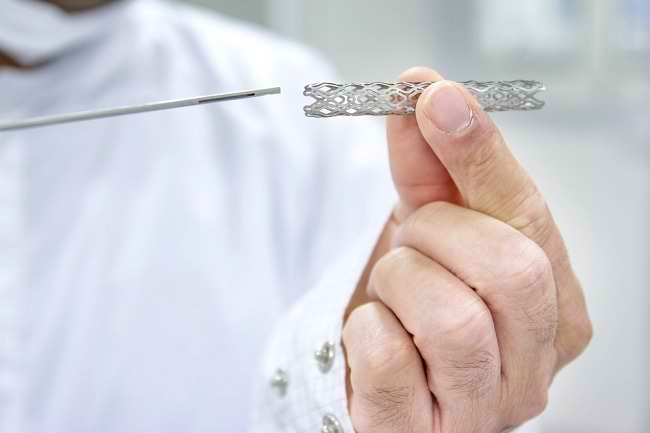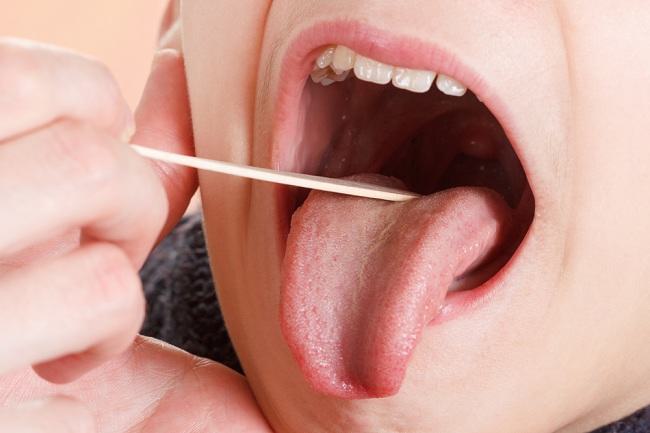Thiopental is a drug used to initiate anesthesia, reduce pressure in the brain due to injury or certain conditions, or treat status epilepticus. This medicine will be given in the hospital by a doctor or medical personnel under the supervision of a doctor.
Thiopental belongs to the barbiturate class of drugs. This drug works by suppressing the activity and work of the central nervous system. This way of working will cause a relaxing effect, so anesthesia and surgical procedures can be carried out.

Thiopental trademark: Thiopental (Ber) G, Thiopental Sodium, Tiopol.
What is Thiopental?
| group | Prescription drugs |
| Category | Barbiturate anticonvulsants (anticonvulsants) |
| Benefit | As an anesthetic before surgery, treat status epilepticus, and reduce intracranial pressure due to certain medical conditions, such as head injuries. |
| Used by | Adults and children |
| Thiopental for pregnant and lactating women | Category C: Studies conducted on animals have shown adverse effects on the fetus, but there are no controlled studies in pregnant women. Drugs should only be used if the expected benefit outweighs the risk to the fetus. Thiopental can be absorbed into breast milk and should not be used in nursing mothers. |
| Drug form | Inject |
Precautions Before Using Thiopental
Thiopental should be used in a hospital by a doctor or medical personnel under the supervision of a doctor. There are several things that must be considered before using thiopental, namely:
- Tell your doctor about your history of allergies. Thiopental should not be given to patients who are allergic to this drug or to other barbiturate drugs, such as phenobarbital.
- Tell your doctor if you have porphyria or severe breathing problems. Thiopental should not be given to patients with these conditions.
- Tell your doctor if you have asthma, severe anemia, thyroid disease, myasthenia gravis, electrolyte disturbances, kidney disease, liver disease, heart disease, muscle disorders, adrenal gland disease, or lung disease.
- Tell your doctor if you have or have recently had a head injury or brain tumor.
- Tell your doctor if you are pregnant, breastfeeding, or planning a pregnancy.
- Tell your doctor if you are taking certain medications, supplements, or herbal products.
- Follow your doctor's advice before, during, and after thiopental injection. The doctor will monitor and monitor the condition on a regular basis.
- Tell your doctor right away if you have an allergic drug reaction, serious side effect, or overdose after using thiopental.
Dosage and Instructions for Use of Thiopental
Thiopental is given by injection into a vein (intravenously). The dose of thiopental will be adjusted according to the patient's condition, age, and body response to treatment. In children, the dose of thiopental will be determined by the doctor according to their body weight (BB).
The following is the distribution of thiopental doses based on their intended use:
Purpose: As an anesthetic before surgery
- Mature: 100–150 mg given preoperatively. The dose may be repeated after 1 minute depending on the patient's response to the drug. The maximum dose is 500 mg.
- Children: 2–7 mg/kg BW given preoperatively. If needed, the dose may be repeated after 1 minute from the first injection. Dosage does not exceed 7 mg/kg body weight.
Purpose: Treat status epilepticus
- Mature: 75–125 mg (equivalent to 3–5 ml of 2.5 percent thiopental solution), given as soon as seizures occur.
- Children: 5 mg/kg body weight given by IV injection slowly.
Purpose: Lowering intracranial pressure
- Mature: 1.5–3.5 mg/kgBW.
- Children aged 3 months: 5-10 mg/kgBW is injected directly into a vein and followed by an infusion of 1-4 mg/kgBW per hour.
How to Use Thiopental Correctly
Injectable thiopental will be given directly by a doctor or medical personnel under the supervision of a doctor. Thiopental will be injected directly into a vein (intravenous) or it can also be intravenously.
During the thiopental injection, the doctor will closely monitor the patient's breathing, blood pressure, oxygen levels, and kidney function. Follow all doctor's instructions during treatment with injectable thiopental for maximum treatment effectiveness.
Thiopental Interactions with Other Drugs
The use of injectable thiopental with certain drugs can cause drug interactions, such as:
- Increased risk of severe respiratory distress (respiratory depression) which can be fatal if used with opioids
- Decreased levels of anticoagulant drugs, such as dicumarol or warfarin
- Increased risk of thiopental levels and effects when used with antidepressants, sedatives, or nitrous oxide
- Increased blood pressure lowering effect when used with antihypertensive drugs
- Increased drowsiness when used with antipsychotic drugs
- Decreased levels and effectiveness of thiopental when used with metoclopramide or droperidol
- Increased risk of heart rhythm disturbances and low blood pressure if used with MAOI drugs, such as selegiline
In addition, the use of herbal medicines such as St. John's Wort, kava-kava, or valerian, may prolong the effect of the drug thiopental. Therefore, the use of all types of herbal remedies should be discontinued at least 2 weeks before surgery.
Side Effects and Dangers of Thiopental
During the use of thiopental, the doctor will monitor the patient's condition. There are several side effects that can occur after using thiopental, namely:
- Pain in the area where the medication was injected
- Cough or sneeze
- Twitch
- Hiccup
- Difficulty breathing or shallow breathing
- Irregular heartbeat
The doctor will treat the patient if the patient experiences these side effects during and after thiopental injection.









